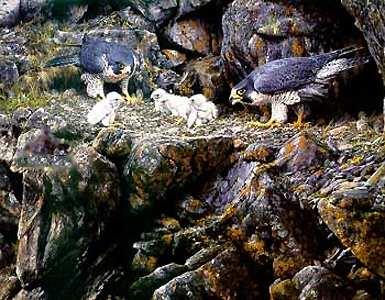|
|
Canku Ota |
|
|
(Many Paths) |
||
|
An Online Newsletter Celebrating Native America |
||
|
July 27, 2002 - Issue 66 |
||
|
|
||
|
'Kwe kwe" |
||
|
The Kanienkehaka (Mohawk) Greeting - pronounced - Gway Gway |
||
|
"Loose Translation-Hello "Hi. " |
||
|
|
||
|
"KELMUYA" |
||
|
Fledgling Raptor Moon
|
||
|
Hopi |
||
|
|
||
|
"In every
generation there will arise a Brant, a Pontiac, |
||
|
|
||
 |
|
The information here will
include items of interest for and about Native American schools. If
you have news to share, please let us know! I can be reached by emailing:
Vlockard@aol.com
|
|
|
|
Artist: In this issue, we feature Jim Boyd, who has been nomintated for not one, but THREE Nammys this year!
Jim Boyd is a singer/songwriter and member of the Lakes band on the Colville Indian Reservation in Washington State. One of six children (three boys and three girls), Jim and his family moved on and off the reservation as they at times followed their father around the country, courtesy of the Air Force. |
At Native Games, Tradition Means Everything Training for the World Eskimo-Indian Olympics, however, isn't like training for a bike race or a football game. Instead of weight rooms and stopwatches, an athlete like Kagak uses walruses and seals. Kagak, 27, won his fifth championship in the Eskimo stick pull Thursday at the Big Dipper Arena. The event is a tug of war between two opponents who sit on the floor across from each other, their legs extended and their hands gripped around a rounded wooden stick about a yard long. |
|
|
Thunderhawk Writer Geoff Hampton shares this story that should delight both young and old. |
10
Ways to Fight Hate In the next issues of Canku Ota, we are going to share ideas with you about learning and teaching tolerance. Perhaps this will inspire you to come up with your own ideas to share. |
|
|
|
||

|
Running Warrior With shoes thin as skin and clothes light as feathers, the state's fastest runners will race around Daylis Stadium tonight. The best Montana Miler will cross the finish a few strides past 4 minutes. Welcoming the runners will be Honorary Miler John Wooden Legs, who holds a record for running a mile in 5 minutes, 34 seconds. In full combat gear. |
Shawnee Tribe to Issue Coins MIAMI, OK - Economic development in Indian country has come a long way from bartering with shells, beads and blankets. In a marked departure from wampum, the traditional form of currency used for centuries in native transactions, it will take a symbolic step further. On July 30, the Shawnee Tribe will issue a silver dollar coin with the likeness of its famous chief, Tecumseh. |
|
|
|
||
|
Course Puts American Indian Heritage in Focus What do you think of when the word "Indian" comes to mind? Are you afraid of Indians? What if you hear the words "Native American?" While a camera filmed his every move, Lee Majel, 17, fired off those questions with the confidence of a professional journalist. For now, he is a high school student searching for information about his American Indian heritage and trying to determine the right path for his future. |
Single-parent Mom Inspires Youth Conference SHIPROCK, NM - Elarina Nakai, a single-parent mother and domestic violence victim, got an idea three years ago to host a youth conference in Shiprock. Her dream of educating children on life issues they need to know came true with her first Shiprock Youth Conference. It was held Thursday and Friday at Tse' Bi' Tai Middle School in Shiprock and was free to area youth. |
|
|
|
||


